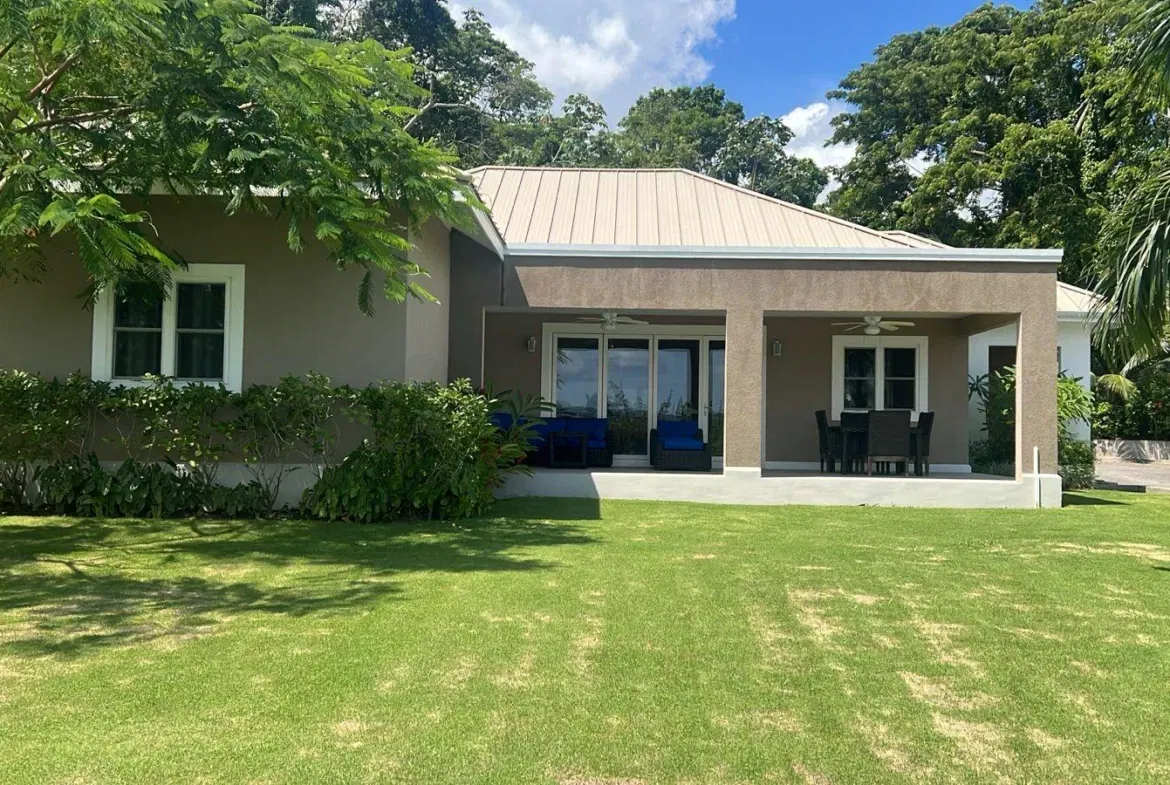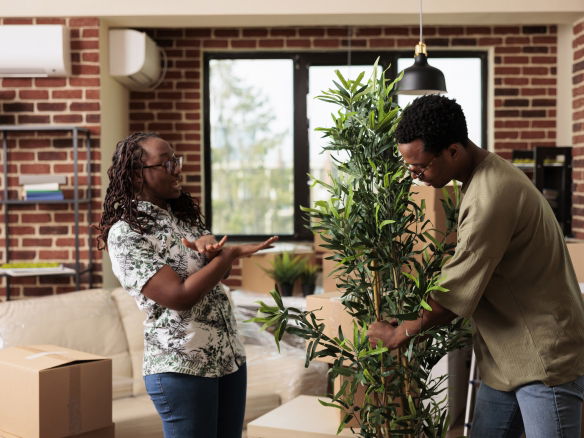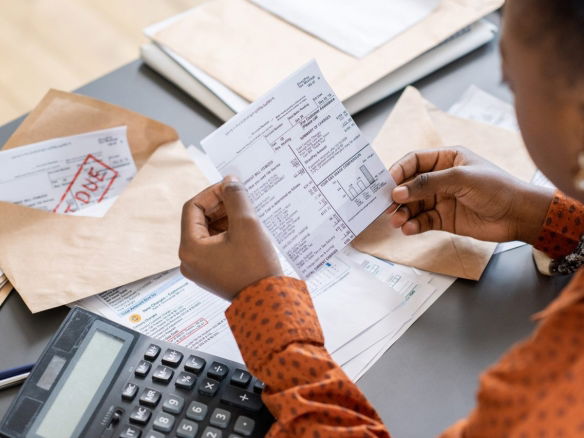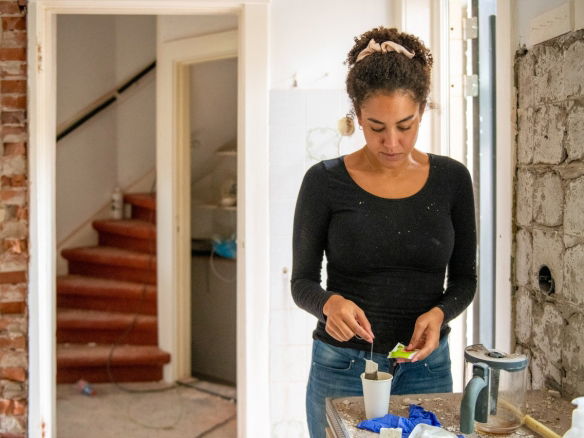With its stunning scenery, energetic culture, and extensive history, Jamaica is becoming a more and more desirable location for real estate investment. Buying property in Jamaica can be a dream come true, whether you’re tempted by the sun-kissed beaches, the prospect of a tropical retirement, or the potential to invest in profitable real estate. That being said, if you’re not aware of the possible problems associated with buying property on the island, this dream might easily turn into a nightmare. To protect your investment and guarantee a satisfying experience, this article examines the most common mistakes made by foreign buyers of real estate in Jamaica.
Table of Contents
- 1. Not Conducting Proper Research
- 2. Ignoring Legal Advice
- 3. Failing to Secure Financing Early
- 4. Underestimating Additional Costs
- 5. Neglecting Property Inspection
- 6. Overlooking Due Diligence on the Seller
- 7. Ignoring the Local Culture and Community
- 8. Making Emotional Decisions
- 9. Failing to Consider Property Management
- 10. Overlooking Exit Strategy
- 11. Not Understanding the Local Market Conditions
- 12. Rushing the Buying Process
- 13. Assuming All Real Estate Agents are Created Equal
- 14. Disregarding Local Infrastructure and Amenities
- 15. Overlooking Hurricane and Natural Disaster Risks
- 16. Not Understanding the Importance of Land Tenure
- 17. Failing to Plan for Long-Term Maintenance
- 18. Overestimating Rental Income Potential
- 19. Ignoring Tax Implications
- 20. Not Having a Contingency Plan
1. Not Conducting Proper Research
One of the most frequent errors made by potential buyers when buying property is not doing enough research. Before making any conclusions about purchases, it is essential to comprehend the Jamaican real estate market. It’s critical to understand the local real estate market, future development plans, and property valuations before making a purchase. It’s also important to do some neighborhood research. Jamaica’s various regions each have their advantages and difficulties. For instance, properties in Kingston might be close to places of work, but ones near Montego Bay or Negril might be better suited for retirement or vacation rentals. Don’t forget to consider things like the likelihood of property worth appreciation or depreciation, crime rates, and accessibility to amenities.
Another risk when buying property is not researching local rules and regulations. Jamaican real estate laws differ from those of other nations, and ignorance of them may result in unforeseen legal issues. This is especially crucial for overseas purchasers who might not be familiar with the nuances of Jamaican property law.
2. Ignoring Legal Advice
Buying real estate is a substantial financial investment, and going forward without competent legal counsel is one of the worst decisions you can make. A seasoned Jamaican real estate lawyer has to be at the top of your priority list. A knowledgeable attorney will guide you through the nuances of Jamaican real estate law, make sure all the paperwork is in order, and defend your rights at every stage of the deal.
It can be risky for purchasers to rely only on the seller’s or the real estate agent’s recommendations, as this is a common mistake. Although they might offer insightful advice, selling the home is their main objective. On the other hand, a committed lawyer will make sure that there are no ambiguities or problems that could influence your acquisition. To confirm who owns the property and make sure there are no liens, encumbrances, or disagreements that can impede the sale, your lawyer will also perform a title search.
3. Failing to Secure Financing Early
Securing financing is one of the most significant steps in purchasing real estate, and it is particularly crucial in Jamaica, where the procedure may be difficult and time-consuming. A common mistake made by purchasers is to begin their home hunt before organizing their finances. Set a budget and, if needed, obtain a mortgage or other financing options before you even begin to look at properties.
For mortgages to be granted to international and local buyers, Jamaican banks have certain prerequisites that must be met, such as evidence of income, credit history, and in certain situations, a larger down payment. Not being able to satisfy the seller’s terms or losing out on an attractive property could result from not securing financing on time. Obtaining a mortgage preapproval is a good idea before starting your home hunt. This will help you establish yourself as a serious buyer and give you a clear notion of how much you can spend.
4. Underestimating Additional Costs
Another common mistake is underestimating the additional costs associated with buying property in Jamaica. Many buyers focus solely on the purchase price of the property and overlook other expenses that can add up quickly. These costs may include:
- Stamp Duty and Transfer Tax: In Jamaica, buyers and sellers are required to pay stamp duty and transfer tax respectively when purchasing and selling a property. These taxes can vary but generally amount to around 5-8% of the purchase price.
- Legal Fees: As mentioned earlier, it’s crucial to hire a competent real estate attorney. Legal fees typically range from 2% to 3% of the property value.
- Registration Fees: There is a fee for registering the property with the National Land Agency, which is usually around 0.5% of the property value.
- Inspection and Survey Fees: Property inspections and surveys are essential to identify any potential issues with the property. These services also come at a cost that should be factored into your budget.
- Maintenance and Repairs: Don’t forget ongoing costs such as property maintenance, repairs, and property taxes. If you are purchasing a home that requires significant renovation, these costs can be substantial.
Failing to account for these additional costs can lead to financial strain or even derail the purchase altogether.
5. Neglecting Property Inspection
One crucial mistake that many purchasers make is neglecting to conduct a comprehensive property inspection, particularly when buying property overseas. Property inspections are crucial in Jamaica to find possible problems including mold, vermin infestations, structural damage, and other flaws that could compromise the security and worth of the property. It is essential to choose a certified inspector who is familiar with the building codes in the area. An inspection report will give a thorough rundown of the property’s condition and point out any maintenance or repairs that may be necessary. Ignoring this procedure now could result in unpleasant surprises later on and expensive repairs that could have been prevented.
6. Overlooking Due Diligence on the Seller
While it’s simple to become caught up in the thrill of discovering the ideal home, failing to conduct due diligence on the seller is a risk that could have serious consequences. It’s critical to confirm the seller’s identity and make sure they are authorized by law to sell the property. Fraudulent sales are not unheard of in Jamaica, since sellers may not possess the legal authority to transfer title. Verify that the seller is the real owner of the property and that it is free and clear of liens, unpaid taxes, and other issues. This process will usually be handled by your attorney, but it is important to recognize its significance and make sure it is carried out completely.
7. Ignoring the Local Culture and Community
Jamaica is a nation rich in culture with unique customs and social mores. Ignoring the dynamics of the neighborhood and local culture might be a big error, especially for international purchasers. Comprehending the local community and culture in the place you are purchasing is essential to guarantee a seamless transfer and to avert possible disputes. For instance, whilst some places might offer a busy nightlife, others might be calmer and more family-friendly. Knowing these dynamics will assist you in selecting a place that fits your expectations and way of life. Talking to residents and gaining a feeling of the local way of life can also yield insightful information that would not be obvious on a quick trip.
8. Making Emotional Decisions
Purchasing real estate is frequently an emotional process, particularly when it involves a stunning island like Jamaica. However, making judgments based solely on feelings can be quite expensive. It’s simple to fall in love with a house because of its location or visual appeal, but it’s important to evaluate it fairly. Whether you want to utilize the property for retirement, personal usage, or rental income, you should think about the property’s potential for value as well as the overall cost of ownership. Emotional haste while making a purchase might lead to overspending or ignoring important details that could negatively impact your investment.
9. Failing to Consider Property Management
A significant mistake made by those purchasing real estate in Jamaica for holiday or rental use is to overlook property management. It can be difficult to manage a property from abroad, particularly when it comes to upkeep, repairs, tenant relations, and regulatory compliance. In the long run, hiring a reliable property management company can save you money, time, and effort. They can take care of everything, including maintenance and tenant screening, to keep your home in good shape and bring in a steady stream of rental income. Not setting aside money for property management might lead to unforeseen stress and extra costs.
10. Overlooking Exit Strategy
Many purchasers neglect the significance of establishing an exit strategy in favor of concentrating only on the acquisition phase. What happens if you eventually need to sell the property? It’s critical to comprehend the resale value, liquidity, and prospective demand of the local real estate market. Making well-informed choices on the kind of property to purchase, its location, and its price range will be aided by having an exit strategy. Additionally, it guarantees that you are ready for any future adjustments to your situation, including having to move or sell the item.
11. Not Understanding the Local Market Conditions
The Jamaican real estate market is distinct, as are other real estate markets. It’s critical to comprehend the specifics of the local real estate market, including the demand for real estate, recurring patterns, and potential economic influences on property values. For example, the demand for beachfront real estate in Kingston or the inland regions may be very different from that of places like Montego Bay or Ocho Rios. Ignoring these market conditions could lead to the purchase of a property that appreciates over time or becomes more difficult to lease or sell. By speaking with regional real estate specialists, going to property shows, and monitoring market reports, you can stay informed.
12. Rushing the Buying Process
Property purchases are big investments, therefore making hasty selections can be the result. A common error made by purchasers is to feel under pressure to decide quickly, particularly when they fall in love with a house. However, it’s vital to take the time to perform in-depth studies, obtain funding, carry out inspections, and consult with legal counsel. It’s critical to exercise patience and avoid making rash decisions out of fear of losing out. Examine every document in detail, speak with experts, and carefully consider your options. Hastily moving through the procedure might lead to expensive errors and buyer regret.
13. Assuming All Real Estate Agents are Created Equal
Not every Jamaican real estate agent has the same training or background. Selecting an unqualified agent might result in inaccurate information, bad property selections, and even legal problems. Choosing a trustworthy real estate agent with experience and familiarity with the neighborhood real estate market is essential. Before selecting an agent to represent you, spend some time investigating and speaking with possible candidates. Request references, check their credentials, and make sure they have a Jamaica Real Estate Board license. In addition to assisting you in locating the ideal house, a competent agent will walk you through the entire buying process and make sure you don’t run into any problems.
14. Disregarding Local Infrastructure and Amenities
Another mistake many property buyers make is neglecting to consider the local infrastructure and amenities. While a property may seem perfect in terms of price and appearance, its value and livability can be heavily influenced by factors such as accessibility, roads, public transportation, healthcare facilities, schools, and shopping centers. For instance, properties in more remote areas of Jamaica may lack essential services like reliable water supply, electricity, or internet connectivity. On the other hand, properties closer to urban centers might provide better access to these amenities but may come with higher noise levels or less privacy. Understanding the infrastructure and amenities available in the area will help ensure that the property meets your lifestyle needs or investment objectives.
15. Overlooking Hurricane and Natural Disaster Risks
Like many other Caribbean islands, Jamaica is vulnerable to weather-related events like hurricanes, earthquakes, and flooding. It is normal to overlook these hazards, which might result in large losses. It is imperative to determine the area’s susceptibility to natural catastrophes before purchasing real estate.
Certain regions are more vulnerable to flooding, landslides, and hurricane damage than others, especially those that are hilly or close to the ocean. Invest in a qualified surveyor to assess the property for any possible hazards. Furthermore, make sure the property is constructed to endure local weather patterns and natural calamities. This may have higher upfront expenditures, but it will save you money over time. To safeguard your investment, you must also obtain sufficient insurance coverage.
16. Not Understanding the Importance of Land Tenure
In Jamaica, different types of land tenure systems exist, such as freehold, leasehold, and family land. Not understanding the differences between these tenure types can lead to confusion and potential legal issues.
- Freehold: This is the most straightforward type of property ownership, where you have full ownership of the land and any structures on it.
- Leasehold: In this arrangement, you own the property for a set period, usually several decades, but the land is leased. At the end of the lease term, the property may revert to the landowner unless an extension is agreed upon.
- Family Land: This is land that has been passed down through generations and may have multiple owners, some of whom might not even reside in Jamaica. Purchasing family land can be complicated, as it often involves negotiating with several parties to establish clear ownership.
Make sure you fully understand the type of land tenure associated with the property you’re interested in and seek legal advice to navigate any complexities.
17. Failing to Plan for Long-Term Maintenance
Many buyers overlook the long-term maintenance costs associated with owning property in Jamaica. The tropical climate, while beautiful, can be harsh on buildings and infrastructure. High humidity, heavy rains, and salt air (in coastal areas) can cause wear and tear on properties much faster than in other climates.
This means that you should be prepared for higher maintenance costs, particularly if the property is older or located near the sea. It’s essential to factor in these ongoing costs when budgeting for your property purchase. Consider setting aside a maintenance fund to cover regular upkeep, repairs, and any unforeseen expenses that may arise. Regular maintenance not only ensures the longevity of your property but also helps maintain its value over time.
18. Overestimating Rental Income Potential
It’s critical to have reasonable expectations regarding the revenue possibilities if you’re buying real estate in Jamaica to make rental income. It’s usual to overestimate rental income, especially in markets where seasonal tourist plays a significant role. Your ability to draw renters and obtain the appropriate rental rates will be greatly impacted by elements including location, property type, and amenities. To gain a firm understanding of what to expect, speak with local real estate specialists and conduct market research to understand rental trends in the area. Take into account Jamaica’s seasonal rental demand, particularly in well-known tourist locations where demand may be lower in the off-season but with high occupancy rates during peak seasons.
19. Ignoring Tax Implications
Property taxes in Jamaica are relatively straightforward, but there are other tax considerations to be aware of, particularly for foreign buyers when buying property in Jamaica. For instance, if you plan to rent out your property, you will be subject to income tax on rental income. Additionally, capital gains tax may apply if you decide to sell the property in the future. It’s advisable to consult a tax professional familiar with Jamaican tax laws to understand your obligations fully. This will help you plan your finances and avoid any surprises down the line. Being aware of tax implications can also guide your decision-making process when choosing a property to purchase.
20. Not Having a Contingency Plan
Buying Property abroad might present many unforeseen difficulties, such as unanticipated financial strains or legal issues. Making the error of not having a contingency plan in place can lead to stress and financial pressure. Potential situations like delays in the purchase process, unforeseen legal costs, changes in exchange rates, or the necessity for further repairs should all be covered by a contingency plan. You can easily handle any unforeseen obstacles by budgeting ahead of time or by having backup plans ready. Having a carefully considered backup plan can ease your mind and guarantee that you are ready for anything that might happen.
Buying property in Jamaica can be a rewarding experience, offering you a piece of paradise in one of the most beautiful locations in the world. However, to make a sound investment, it is essential to be aware of the potential pitfalls and mistakes that can arise during the process. Remember, the key to a successful property purchase is preparation. Take the time to understand the market, secure your finances, and choose the right professionals to guide you through the process. With the right approach, you can enjoy the many benefits of owning property in Jamaica, from a tropical retreat to a profitable investment.





